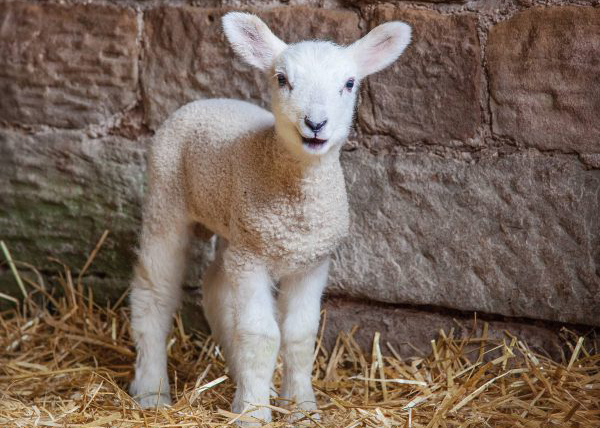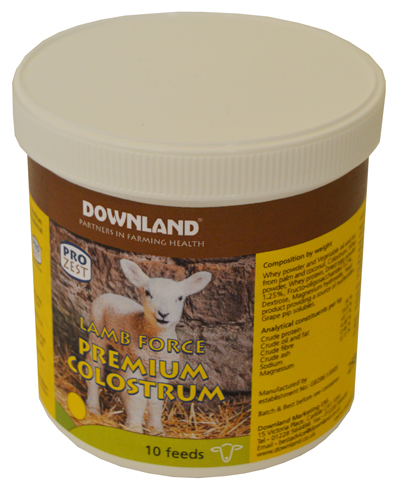Improving newborn lamb survival
15th December 2020
The three ‘golden Qs’ to lamb colostrum feeding are: quality, quantity and quickly.
There is no transfer of maternal antibodies across the placenta in ruminants for the developing foetus. Lambs are born without protection against disease and are reliant on colostrum- containing antibodies against pathogens for the transfer of passive immunity. Colostrum antibody production is dependent on the ewe being adequately fed and supplemented in late pregnancy.
The transport of immunoglobulin from blood serum to the mammary gland begins several weeks before parturition and reaches a peak a few days before lambing. The highly permeable gut lining of the newborn lamb allows for large antibody molecules to be absorbed directly into the bloodstream in the first six hours after birth. This permeability gradually reduces up until 12 hours after birth and thereafter antibodies cannot pass through the gut lining into the bloodstream. High quality ewe colostrum contains 50g/litre or more of Immunoglobulin-G (IgG).
Any reduction in the IgG level in colostrum can mean the difference between successful or failure of passive transfer to the newborn lamb. Colostrum should be provided at 50 ml/kg live weight per feed at birth and every six hours thereafter in the first 24 hours and should be increased by 20-30 per cent for lambs exposed to undesirable weather i.e. one extra feed. It is essential that a newborn lamb receives 3g of IgG after birth. The three ‘golden Qs’ to lamb colostrum feeding are: quality, quantity and quickly.
In addition to providing antibodies which are vital to help protect the lamb against disease, colostrum is a highly nutritious energy source which helps the lamb maintain body temperature and survive. The two principal causes of early lamb mortality are hypothermia (chilling) and starvation. Newborn lambs have a large surface area-to-bodyweight ratio, which makes them susceptible to heat loss.
Lambs born in a cold, wet, windy environment will lose heat at a much higher rate than lambs born in a warm, dry, draft-free environment. All lambs are born with a finite amount of brown adipose fat tissue within their bodies that is used to keep warm. This protective mechanism is a reserve between birth and the time when the lamb is able to feed.
Vitamin E is an integral component of lipid membranes and newborn lambs are susceptible to vitamin E deficiency because of the negligible amount of vitamin E that crosses the placenta. It is important that colostrum supplies the lamb with sufficient vitamin E (supplementation of the ewe in late pregnancy), as lambs depend on brown adipose tissue as the primary source of non-shivering heat production.
Lambs that do not feed within the first few hours after birth will run out of energy reserves to keep warm and will die rapidly if there is no intervention.
Starvation can be caused by factors such as inadequate intake of colostrum, rejection by the ewe, inadequate milk production, injury, illness and/or difficult birth. These factors can be identified and corrected by careful and regular observations of the lambing pen by the stockperson.
Usually maternal colostrum is an adequate source of protection and nutrition for the newborn lamb, however, there are instances when this is not possible e.g. poor quality, inadequate quantity produced, presence of disease and an alternative such as a colostrum enhancer or replacer needs to be considered.
Downland’s ProZest formulation is a balanced fusion of essential colostrum protein from easily digestible and available sources, reducing potential competition for absorption from other non-colostrum protein sources. The scanning of product batches for colostrum protein ensures adequate supplementary levels are consistently provided to the newborn lamb. Furthermore, Downland Lamb Force Colostrum contains colostrum from a source certified EBL, IBR and Johne’s free, giving you peace of mind.


